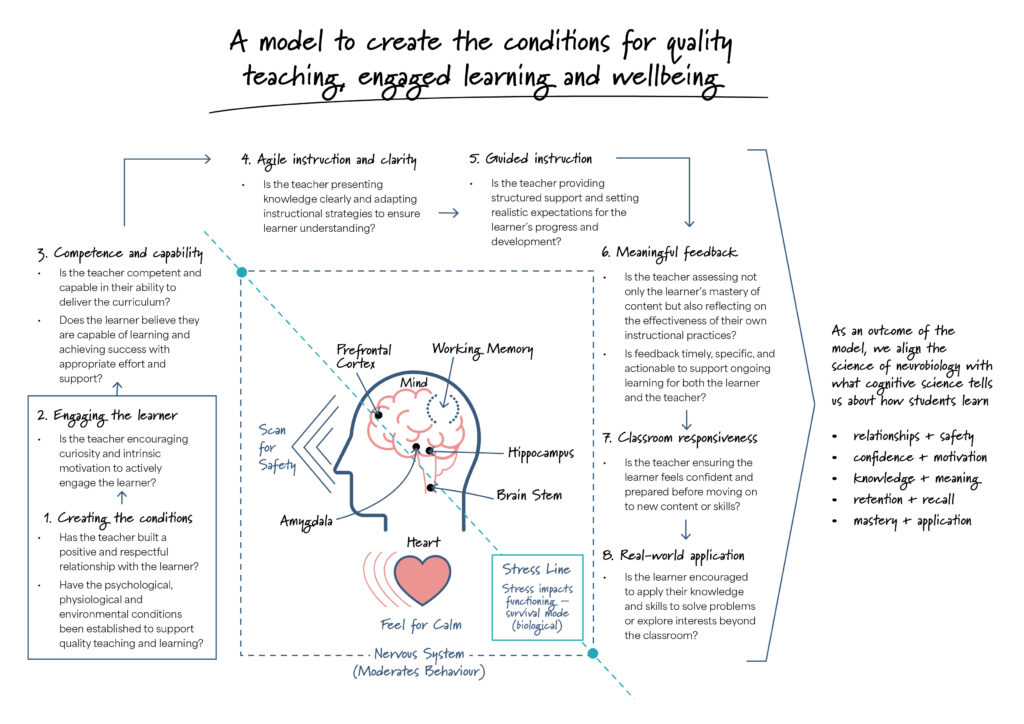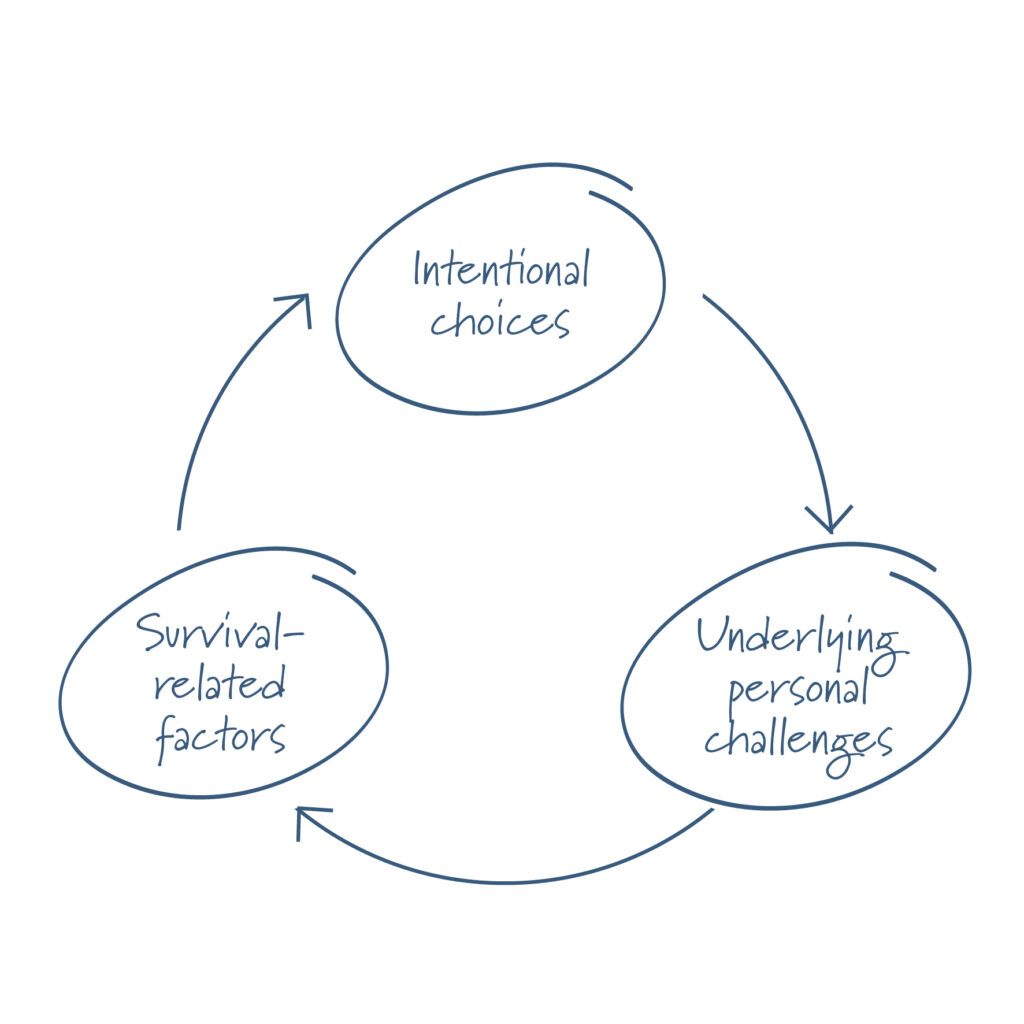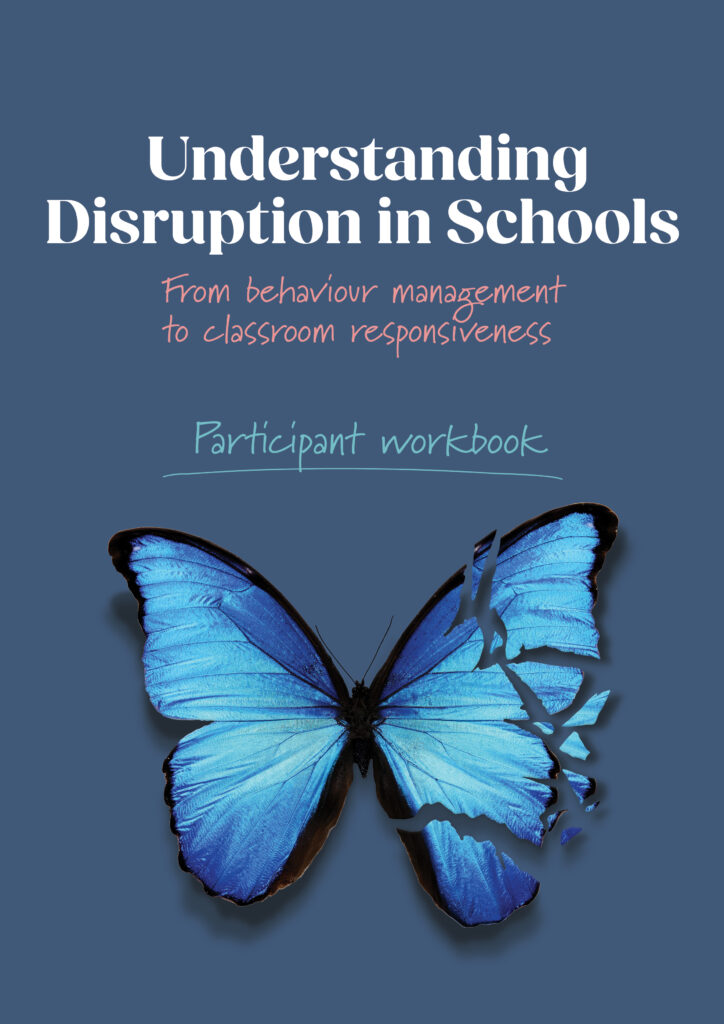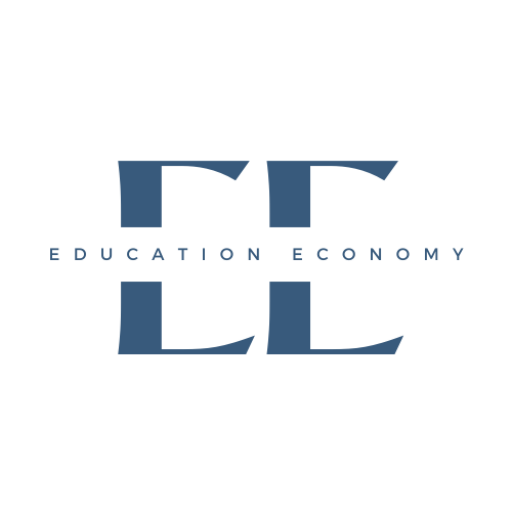"Disruption in Schools" - A Framework for Schools.
From behaviour management to classroom responsiveness
Responding to behaviours of concern with confidence
Building a successful and inclusive school culture
“Disruption in Schools”, provides teachers, school leaders and education systems with a framework for how to respond to behaviours of concern with confidence, creating the conditions for quality teaching, engaged learning and whole school wellbeing.
The professional learning program that accompanies the book is a whole-school approach to responding to behaviours of concern.
Too often, we see the separation of academic improvement and behaviours. We can no longer afford to separate wellbeing from achievement or environment from outcomes. As educators, leaders, parents and policymakers, we must treat learning not just as a cognitive exercise but as a human one.
Our focus is not on managing behaviour, but on addressing the conditions that influence it.
We support schools in creating those conditions, regardless of the curriculum, the government of the day or the weather outside. At the core of our work is a preventative approach to teaching and learning adversity. By planning for what might go wrong, emotionally, behaviourally or contextually, we reduce the likelihood of breakdowns or disruptions.
And when challenges do arise, their impact is less severe and more manageable.
Our model doesn’t just support students, it also protects the wellbeing and stamina of school staff at a time where they need that buffer most.
This isn’t an ‘either/or’ solution. It’s a whole-system, whole-human approach, comprehensive, preventative and grounded in the realities of today’s classrooms.
Creating the conditions for quality teaching and learning is just as important as the learning itself.

“Disruption in Schools” is informed by evidence in cognitive and behavioural science as well as educational and neurobiological research.
Is it a choice or is it about survival?
Classroom disruption can involve a range of behaviours. The motivations behind these can vary widely.
“Disruption in Schools”, explores how most disruptive behaviour can fall into the following three categories;
- Intentional Choices
- Underlying Personal Challenges and;
- Survival-related Factors.

Our model and coach approach, combines instructional modelling with real-time coaching in the regular classroom to help teachers respond to behaviours of concern.
Here’s how it works:
Expert live demonstration: as behaviour specialists we demonstrate specific techniques and strategies for responding to behaviours of concern in the regular classroom environment. This will be live not role-playing scenarios, allowing education professionals to observe behaviour responses that can be implemented in real-time.
Practical strategies: these may include positive behaviour reinforcement, de-escalation techniques, preventative measure techniques and learner engagement strategies.
Playback: after modelling, we observe the education professional in action, providing immediate, constructive feedback on how they apply what they themselves have just observed.
Reflection: we engage in reflective practice conversations to discuss what worked, what didn’t, and hear from the education professional how they feel they can refine their approach.
Hands-on learning: education professionals see and practice techniques in real-time, making it easier to understand and apply them in daily classroom situations.
Confidence building: education professionals feel more empowered to respond to behaviours of concern or deploy preventative measures to adversity, reducing classroom stress and improving student outcomes.
Our Preventative Measures to Adversity (PMA) Framework, helps education professionals move beyond surface-level interventions, responding to behaviours of concern by incorporating principles from brain science.
Learn more about the PMA Framework and its implementation in schools.

Professional Learning Program
This interactive program is a schools guide to the book: “Disruption in Schools: Understand me before you mark me!”
We take a look at the ways schools can move beyond quick fixes and create sustainable conditions for a successful classroom.
Through reflection, storytelling, and actionable tools, we explore ‘easy-to-apply’ strategies to respond to ‘disruption’ and ‘behaviours of concern’, in our schools.
FREE RESOURCE - from "Disruption in Schools"
Classroom Responsiveness Checklist (CRC)
This tool promotes a proactive and reflective teaching practice, ensuring that education professionals are effectively considering how they respond to diverse learning needs, classroom behaviour and foster supportive learning environments.



